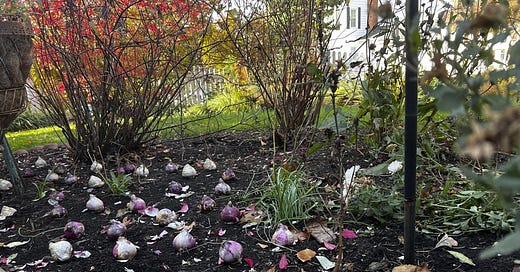Tackle late-season gardening chores now for an easier spring
If you’re new here, welcome! To receive The Weekly Dirt in your inbox every week…
Hi, guys!
Fall begins this week, but make no mistake: It’s not time to stop gardening, just time to shift gears.
In many regions, the spring bulb-planting window is opening, but in others, tomatoes, which wouldn’t stan…
Keep reading with a 7-day free trial
Subscribe to The Weekly Dirt with Jessica Damiano to keep reading this post and get 7 days of free access to the full post archives.



